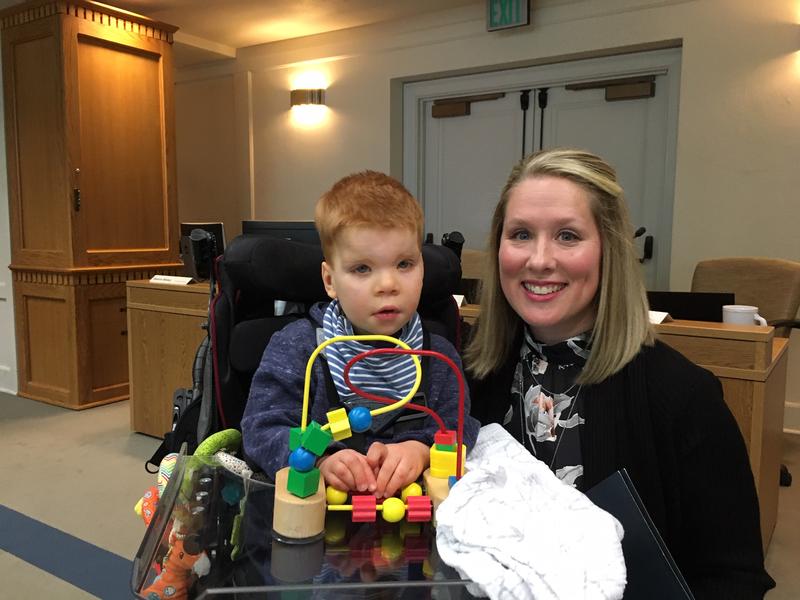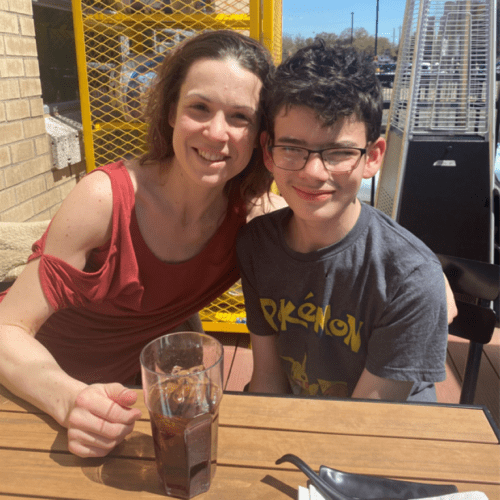
Washington Mother And Advocate For Developmental Disability Services: ‘Move To Oregon’
Listen
As families of people with developmental disabilities in Washington struggle to get access to state-paid services, there’s a renewed push to link funding increases to growth in population.
Currently, nearly 14,000 people who meet the state’s criteria as developmentally disabled are not receiving services. They’re on what’s known as the no-paid services caseload.
More than 400 of them have formally requested services, but have been told none are available because Washington caps the number of Medicaid waivers it provides to people with developmental disabilities.
By contrast, Oregon makes developmental disability services an entitlement for those who meet eligibility requirements.
Washington currently ranks 30th in the nation for developmental disability services, according to a 2019 report called “The Case for Inclusion.” At the same time, Washington is experiencing 15 percent annual growth in the number of people who qualify as developmentally disabled, according to the state’s Developmental Disabilities Administration (DDA).
Advocates in Washington say access to services is so limited they advise families to look elsewhere for help.
“I tell them to move to Oregon, I tell them to move to another state, do not come to Washington because we don’t have the supports people need,” said Sue Elliott of the Arc of Washington State in testimony Monday before the Joint Legislative Executive Committee on Planning for Aging and Disability Issues.
Democratic state Sen. Emily Randall, who co-chairs the aging and disabilities committee and whose sister was born with severe developmental disabilities, said Monday she plans to introduce legislation for the 2020 session to tie funding for developmental disabilities services to the forecasted need for those services.
“I think this is a time where we’re addressing this civil rights issue in a new way and with new eyes,” Randall said.
Longer term, Randall said she’s interested in restoring funding that was cut during the Great Recession to hire case managers to work with individuals on the no-paid services caseload.
The Department of Social and Health Services (DSHS), which oversees developmental disabilities services in Washington, is also recommending case managers be brought back.
“The real story with the no-paid caseload is we don’t know much about what they need or want,” said Beth Krehbiel, the acting chief of DSHS’s office of Medicaid eligibility.
Even when families do receive a Medicaid waiver for services, they can experience challenges navigating the system.
Lindsey Topping-Schuetz recently learned her three-year-old son Owen, who was born with two rare chromosomal abnormalities, will receive Medicaid-paid services. The family had previously been denied three times. But getting those services lined up is proving difficult.
“Since we were approved for his waiver, I have really had to be very aggressive with DDA to try to find out what in fact we are entitled to and how to get those things started,” Topping-Schuetz said.
Noah Seidel with the Office of Developmental Disabilities Ombuds told the aging and disabilities committee that families often experience a disquieting delay between getting qualified for services and being assigned a case manager.
“If they don’t yet have a case manager, they feel like they get lost in the system,” Seidel said. “We’ve heard from folks who …. know they’ve been accepted, but then a few months pass and they haven’t heard from their case manager yet.”
Part of the issue may be the typical DDA case manager is juggling an average of 75 clients. Randall said she would like to reduce those caseloads.
Another challenge facing families of the developmentally disabled is finding qualified caregivers.
Topping-Schuetz said she and her husband did a “happy dance” after learning Owen would finally get access to services. But then they started talking to other families with Medicaid waivers and learned there’s a shortage of qualified caregivers.
“All of the families who were on the waiver let out the big ‘oh, but now you have to find care [warning],” Topping-Schuetz said. “It’s very frustrating, it’s very disappointing, it’s confusing.”
Related Stories:

New grant to help people with developmental disabilities find housing
Andrew Adams waters the garden outside the kitchen of his home. (Credit: Kristin Adams) Listen (Runtime 4:10) Read By Lauren Paterson and Rachel Sun For adults with developmental disabilities in

Washington Is Sending Youth In Crisis To Out-Of-State Boarding Schools; Taxpayers Pick Up The Tab
Some parents with kids in crisis in Washington are making a heart wrenching decision. They’re sending their children to out-of-state therapeutic boarding schools. And taxpayers are picking up the tab. While these are outlier cases, they highlight ongoing gaps in in-state services — gaps that were laid bare during the COVID pandemic.

He’s 13-Years-Old, Autistic And Stuck In The Hospital For The Holidays. He’s Not The Only One
It’s a growing problem in Washington: kids with developmental disabilities and complex behaviors who are stuck in the hospital with no reason for being there. Usually, they end up in the hospital after a crisis or an incident. But once the child is medically cleared to leave, their parents or their group home won’t come get them citing inadequate supports to manage the youth’s needs. While the state searches for alternative placements, the child waits.















